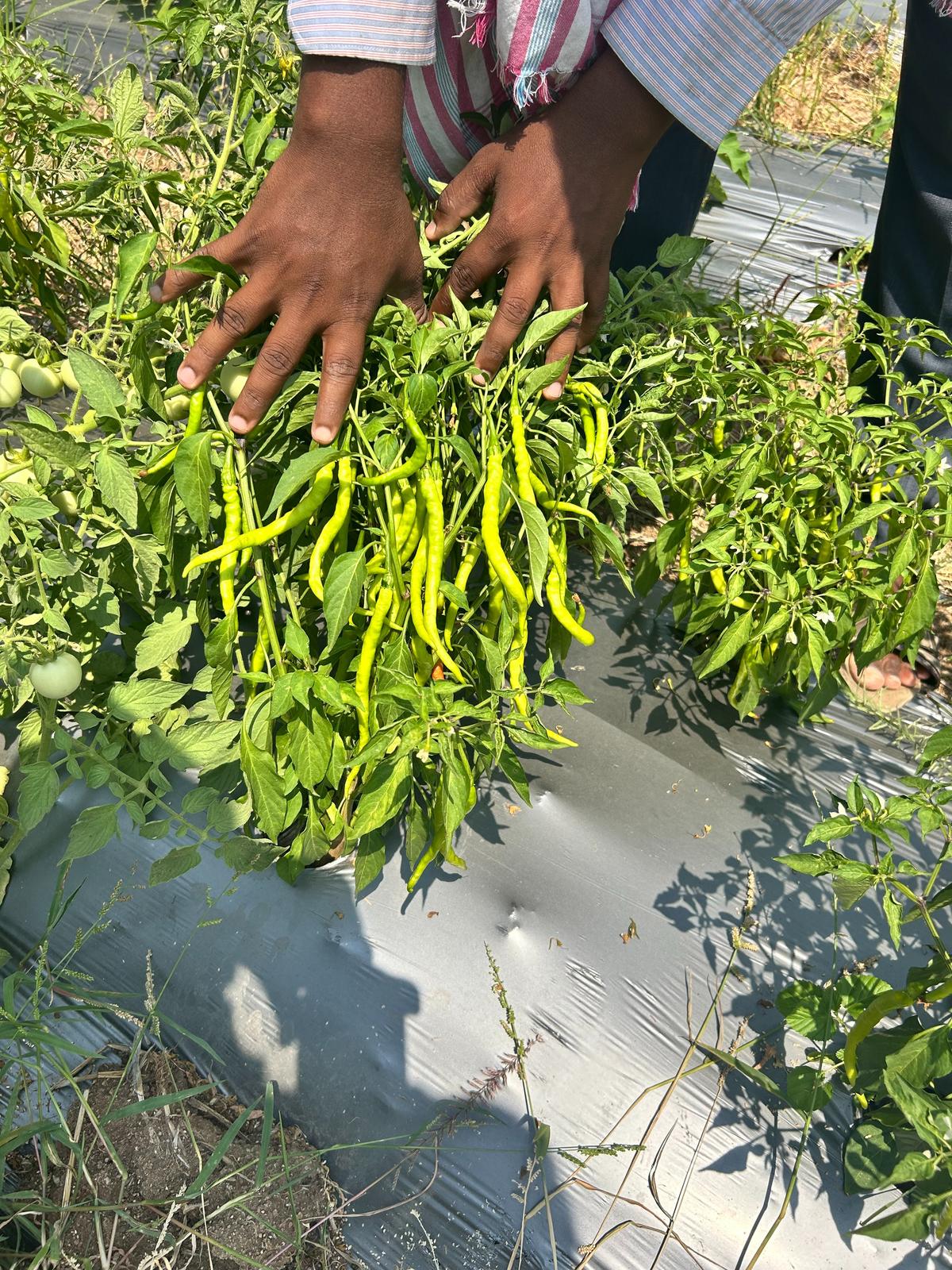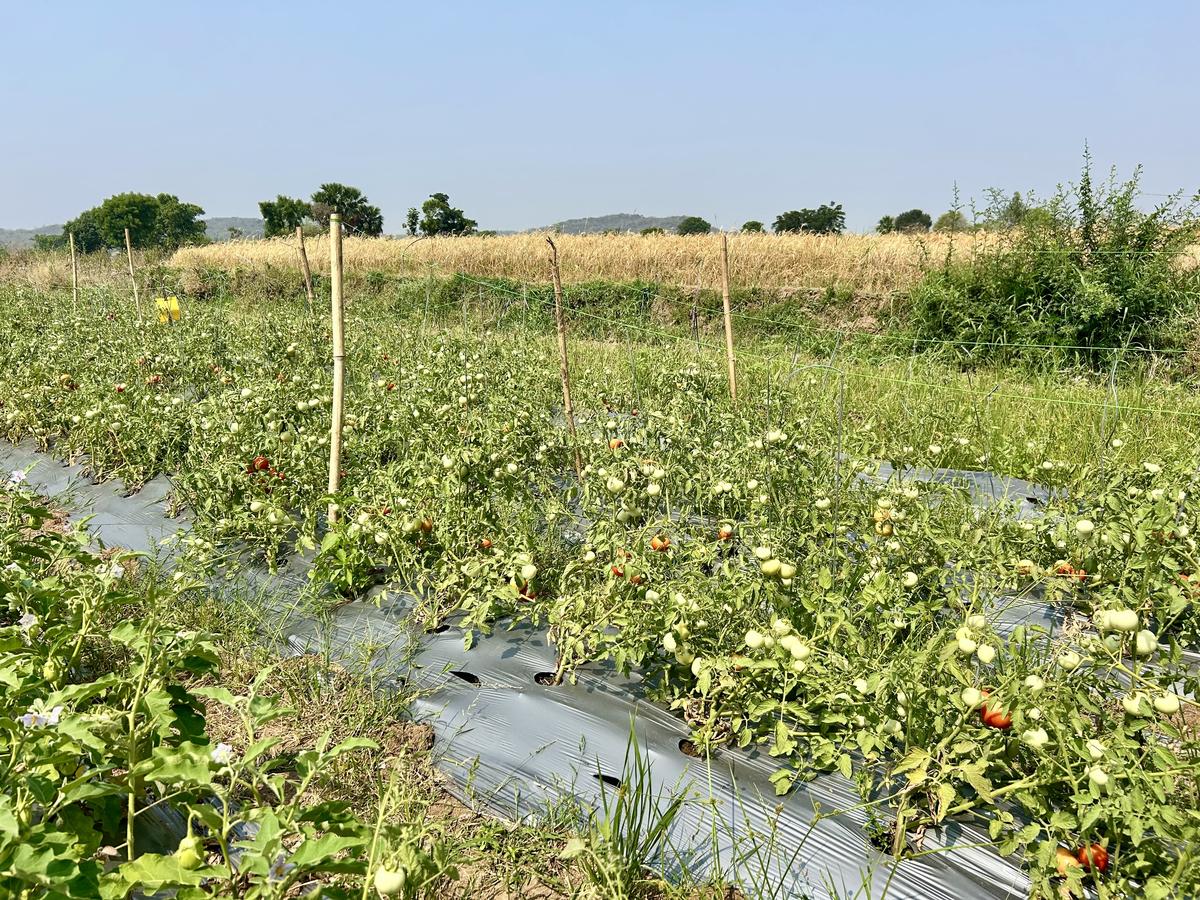
Farmer Ilapuram Anil Reddy and Agricultural Extension Officer Nagarajun at the former’s farm at Pedda Masanpally village of Thoguta Mandal in Siddipet district.
Siddipet
In a move aimed at encouraging sustainable farming, Agricultural Extension Officer (AEO) of Yellareddypet cluster in Siddipet district T. Nagarjun has introduced biocontrol agents and biofertilisers to promote eco-friendly pest and nutrient management methods. The AEO recently organised demonstrations at Rythu Vedhika and on the field of farmer Ilapuram Anil Reddy in Pedda Masanpally village of Thoguta Mandal.

Chilli crop at Anil Reddy’s farm at Pedda Masanpally village.
Speaking to The HinduMr. Nagarjun emphasised that not all pest problems require chemical solutions. “The overuse of pesticides has not only reduced biodiversity but also led to frequent pest outbreaks due to monoculture practices. Monitoring tools like pheromone, sticky traps, and light traps help detect pest thresholds before crop losses occur,” he said.
During the field demonstrations, biocontrol techniques were applied to tomato, chilli, and brinjal crops. Chemical fertilisers were replaced with biofertilisers including Azotobacter (for nitrogen), phosphorus and potash-solubilising bacteria, and zinc-solubilising bacteria — microorganisms that naturally enhance soil fertility and reduce the dependency on synthetic inputs.

Tomato crop at Anil Reddy’s farm at Pedda Masanpally village.
To control plant diseases, microbial agents such as Trichoderma viride, Pseudomonasand Bacillus subtilis were used. These microbes exhibit antagonistic activity by inhibiting plant pathogens through enzymes and antibiotics.
For managing sucking pests like thrips, whiteflies, and jassids, farmers employed biopesticides including Beauveria bassiana, Verticillium lecaniiand Isaria. Insect pests such as caterpillars, borers, and leaf miners were tackled using Metarhizium and Bacillus thuringiensis.
Other beneficial microbes, such as Nomuraea and Bacillus subtiliswere also introduced to bolster plant immunity and resilience. “These eco-friendly methods reduce pollution, conserve soil biodiversity, and improve long-term soil health,” Mr. Nagarjun said.
Farmer Anil Reddy reported significant benefits from the initiative. “Pests in tomato and chilli crops were eliminated, though a few were still seen in brinjal. The bio-inputs we received from Krishi Vigyan Kendra (KVK), Medak, helped us save around ₹5,000 on fertilisers and pesticides,” said Mr. Reddy, who cultivates crops on half an acre (20 guntas) of land. He is also using modern farming methods like use of mulching sheets to check the weed in the field and is anticipating a good yield.
Published – April 21, 2025 06:30 pm is





